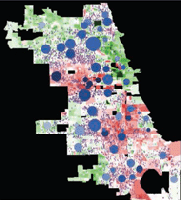
Complex systems view of educational policy research
Science 330, 38-39 (2010)
Times cited: 25
Abstract
Education researchers have struggled for decades with questions such as "why are troubled schools so difficult to improve?" or "why is the achievement gap so hard to close?" We argue here that conceptualizing schools and districts as complex adaptive systems, composed of many networked parts that give rise to emergent patterns through their interactions, holds promise for understanding such important problems. Although there has been considerable research on the use of complex systems ideas and methods to help students learn science content, only recently have researchers begun to apply these tools to issues of educational policy.